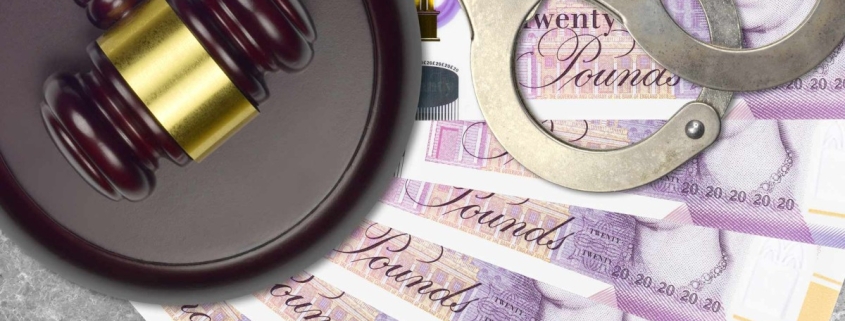How Lawyers Shape, Shift, and Support UK Law
The legal profession in the UK is steeped in tradition, history, and an enduring commitment to justice. For centuries, UK lawyers have played an instrumental role not only in interpreting the law but also in shaping and shifting it. Their impact permeates the fabric of UK’s legal system, influencing everything from the creation of legislation to its application in everyday life.
Lawyers as Shapers of Law
It’s no secret that the legal landscape of the UK has evolved considerably over time. Yet, one constant remains: the indispensable role of lawyers in moulding the law. Through their advocacy and advisory roles, lawyers have historically been the architects behind many landmark decisions and legislation.
- Legislation Crafting
Many lawyers, especially those with considerable experience and influence, have had the privilege of collaborating with legislators in drafting bills and amendments. Their hands-on experience with how laws play out in real-life scenarios makes their insights invaluable. By highlighting potential ambiguities or pitfalls in proposed laws, lawyers ensure that legislation is robust, fair, and aligned with the needs of the public. - Case Law Evolution
Beyond the written statutes, case law or precedent has a significant influence on UK law. Lawyers, through their arguments in high-profile cases, can set precedents that effectively reshape the interpretation of existing laws. Think of landmark decisions in areas like human rights, property law, or family law; behind each of these pivotal moments stood lawyers advocating for change or clarity.
Lawyers as Shifters of Law
As society evolves, so does its understanding of justice, fairness, and morality. Lawyers play a critical role in echoing these shifts within the corridors of justice.
- Social Change Advocacy
Many lawyers, passionate about societal issues like gender equality, environmental conservation, or digital rights, utilise their expertise to push for legal reforms. They lobby, engage in public debates, and use their platforms to elevate pressing issues, prompting lawmakers to re-evaluate existing legislation. - Legal Commentary
Through articles, seminars, and discussions, lawyers critique and dissect current legal frameworks. This ongoing dialogue within the legal community often acts as a catalyst for shifts in legal thought, gradually influencing the broader legal system.
Lawyers as Supporters of Law
While shaping and shifting are dynamic processes, the role of lawyers as pillars supporting the UK legal system is equally crucial.
- Guardians of Procedure
For the law to command respect, it must be applied consistently and fairly. Lawyers, by upholding procedural norms and standards, ensure that the rule of law is maintained. Their rigorous training makes them custodians of these processes, ensuring every individual gets a fair trial and access to justice. - Legal Education and Mentorship
Senior lawyers, through their roles in universities and training programmes, ensure that the next generation of lawyers upholds the same standards of excellence and integrity. By instilling both knowledge and ethics in budding lawyers, they cement the profession’s role as a bedrock of the legal system. - Public Trust and Confidence
Lawyers, by virtue of their profession, interact regularly with the public, providing legal advice, representation, and counsel. Their dedication to their clients’ rights and interests fosters public trust in the legal system. This trust is instrumental in ensuring that the system functions smoothly, with individuals confident in seeking redress and justice.
Historical Influences of Lawyers on UK Law
Looking back at the annals of British history, lawyers have always had an influential role. From the signing of the Magna Carta in 1215, which had its foundations influenced by legal minds, to the human rights campaigns in the modern era, lawyers have been at the helm of legal innovations and revolutions.
- The Establishment of Common Law
The common law system, a jewel in the crown of UK law, owes its existence to early lawyers and jurists who meticulously recorded judgements and set precedents. Over time, these decisions formed a rich tapestry of case laws that would guide future judgements. - Legal Reforms and Movements
Over the centuries, lawyers have been at the forefront of legal reform movements. Be it the Chartist movement of the 19th century, advocating for democratic reforms, or the push for gender equality in the 20th and 21st centuries, legal minds have been instrumental in leading change.
The Modern Lawyer: Navigating a Rapidly Changing World
The 21st century has seen an unprecedented pace of change, driven by technology, globalisation, and shifting societal values. Modern lawyers in the UK find themselves navigating challenges that their predecessors could scarcely have imagined.
- Digital and Cyber Law
With the advent of the internet and digital technologies, new legal terrains have emerged. Lawyers today grapple with issues like cybercrimes, data privacy, and digital rights. Their role in shaping and interpreting laws in these arenas is paramount to ensure that the digital age is governed by justice and fairness. - International Law and Globalisation
As the world becomes more interconnected, lawyers play a pivotal role in understanding and shaping international law. Whether it’s trade agreements, human rights treaties, or environmental pacts, lawyers are crucial in bridging the gap between national and international laws. - Crisis Management and Adaptability
From the financial crisis of 2008 to the global pandemic of 2020, the modern lawyer has had to adapt rapidly to changing circumstances. They’ve been instrumental in interpreting new regulations, advising businesses and individuals, and ensuring that the rule of law prevails even in times of uncertainty.
The Ethical Imperative: Lawyers as Beacons of Morality
Beyond the mechanics of law lies the realm of ethics and morality. Lawyers, bound by their professional oaths, play a critical role in ensuring that the legal system remains just and equitable.
- Pro Bono Work
Many lawyers in the UK undertake pro bono work, offering their services free of charge to those who cannot afford them. This practice underpins the principle that access to justice should be universal, regardless of one’s financial standing. - Championing Human Rights
From civil liberties to social justice, lawyers often find themselves championing causes that uplift and protect humanity. They challenge unjust laws, represent the downtrodden, and ensure that the voiceless have a say in the legal system. - Navigating Ethical Dilemmas
The legal world is rife with complexities. Lawyers often face moral and ethical dilemmas in their line of work. By adhering to their code of ethics, they ensure that the line between right and wrong remains clear, upholding the integrity of the legal profession.
Lawyers, in the vast legal tapestry of the UK, have always been more than mere practitioners. Their influence, stretching back centuries, is testament to their enduring importance. As shapers, shifters, and supporters of law, they play an indispensable role in ensuring that the UK’s legal system remains dynamic, just, and reflective of societal values. As we move forward, their role will only become more pronounced, adapting to new challenges and continuing their legacy of championing justice.
One notable example of a UK lawyer who stood as a beacon of morality is Sir Keir Starmer. Before his political career, which eventually led him to become the Leader of the Labour Party, Starmer was a human rights lawyer and the Director of Public Prosecutions (DPP) in the Crown Prosecution Service.
As a lawyer:
- Championing Human Rights
In his early legal career, Starmer worked extensively on human rights cases, both in the UK and abroad. He co-founded Doughty Street Chambers, a leading human rights firm. One of his notable cases was his representation of Helen Steel and David Morris in the “McLibel” case, which became the longest trial in English history. - Death Penalty Advocacy
Starmer also worked on several cases opposing the death penalty overseas, particularly in the Caribbean and Africa. His work in this area influenced the decision-making in jurisdictions that historically leaned towards capital punishment. - Director of Public Prosecutions (DPP)
As the DPP from 2008 to 2013, Starmer made several notable decisions, many of which were influenced by a strong sense of morality. For instance, he published guidelines on how the Crown Prosecution Service should handle cases of assisted suicide, providing clarity on a morally and legally complex issue.
While Starmer’s time as DPP wasn’t without controversy or difficulties, his dedication to ethical standards, social justice, and human rights has characterised his legal career. His ability to navigate complex moral terrains and stand up for principles of justice exemplifies the role of lawyers as beacons of morality in society.
To view lawyers merely as practitioners of the law would be an oversimplification. In the UK, they have long been the unsung heroes behind the evolution of its legal landscape. They shape the nuances of legislation, shift perspectives to align with societal values, and stand as steadfast supporters of the rule of law.
As society continues to evolve, so will the challenges it faces. New dilemmas, be they ethical, technological, or societal, will arise. And as history has shown us, lawyers will undoubtedly be at the forefront, ensuring that UK law remains a living, breathing entity that resonates with the times and serves the greater good.









